Originally published January 31, 2010 at 8:00 PM | Page modified September 15, 2011 at 2:06 PM
Neglect and death, but adult family home stays open
The state knew of chronic violations at Arlie Leno's adult family home, the Narrows View Manor, but a family that put its loved one there did not.
Seattle Times staff reporter
ALAN BERNER / THE SEATTLE TIMES
"We didn't know. And I didn't complain early enough to save her," said Elaine Matsuda, right. She and her sisters, including Janice McDonald, left, were unaware of the many serious violations the state found at Narrows View Manor and unaware for weeks of the bedsore that led to the death in 2006 of their mother, Nadra McSherry.
COURTESY THE MCSHERRY FAMILY
Nadra McSherry died in great pain, her daughters say, because her caretakers did not alert the family, her doctor or nurse of a bedsore.
ALAN BERNER / THE SEATTLE TIMES
Arlie Leno owns and still operates the Narrows View Manor adult family home in Tacoma, even though DSHS workers had sought to take his license in 2007. They were overruled by their superiors.
COURTESY THE MCSHERRY FAMILY
"My mother died a horrifically painful death. She weighed 80 pounds when she died," said Elaine Matsuda of Nadra McSherry, shown above in a family snapshot. Matsuda and her sisters filed a civil suit claiming that DSHS knew of the risks to the residents of Narrows View Manor and chose to ignore them. The state settled late last year for $565,000.
Getting help
Report abuse: Call the 24-hour EndHarm hotline, 1-866-363-4276
Check for violations: Call the DSHS regional office for the violation history of an adult family home. To check those in King County, call 253-234-6001. In Snohomish County, 360-651-6850. In Pierce County, 253-983-3849.
Source: DSHS
An adult family home that works
Update: Searchable directory of Washington's adult family homes
Database | Seniors enforcement actions
![]()
Nadra McSherry devoted her life to helping disabled schoolchildren. But after her husband died, she suffered a heart attack and a stroke. Now it was time for someone to help her.
Her three daughters searched for the right place. They agreed that an adult family home offered their 74-year-old mother an ideal blend of independence and care.
They inspected more than a dozen homes and grilled their owners. They were comforted that adult homes were licensed by the state Department of Social and Health Services.
In fall 2001, they settled on Narrows View Manor in Tacoma, owned by Arlie and Charlene Leno.
The ranch home is perched on a bluff in West Tacoma with spectacular views of the Tacoma Narrows. Lush gardens surrounded a rear patio. The home looked immaculate, with fresh flowers everywhere. Meals were nutritious and varied. A harpist played music weekly.
McSherry paid $3,500 a month for a bedroom, prepared meals and daily care delivered by a staff of aides.
"It seemed like the perfect place," youngest daughter Elaine Matsuda said.
McSherry's daughters had no clue that only weeks earlier, inspectors for DSHS had swept into the home and uncovered 14 safety and health violations. And they had no idea that Arlie Leno harbored a troubling past, one enabled by state regulators.
By the time they pieced it together, it was far too late to save their mother.
First: real trouble with boarding home
In 1990, Arlie Leno, 63, left his job as a nursing-home administrator and became his own boss, getting a state license to run a Tacoma boarding home with 16 adult residents. He called it Tule Lake Manor.
Boarding homes are larger versions of adult family homes, with meals, housekeeping and laundry provided by staff, and generally cost less for residents.
Leno's residents ranged from the bed bound to those with late-stage Alzheimer's disease or Down syndrome.
Despite his work experience, Leno got into trouble within a few months of opening Tule Lake Manor.
Inspectors for DSHS cited him for 18 violations, many of them serious, including failing to properly train staff, notify family when a resident fell and broke a hip, and obtain medical care for a resident who fell and was injured.
Inspectors found that one staffer had lost her nurse's-aide license for "alcohol and drug issues"; another was on probation for a felony assault conviction and, by law, was not allowed to be alone with a vulnerable adult. Only a handful of owners have employed staff convicted of "disqualifying" crimes, records show.
The state rarely invokes the ultimate penalty, revoking a home owner's license. But in 2000, DSHS revoked Leno's boarding-home license, citing a decade of abuse and neglect and evidence that residents had "suffered actual harm." Between 1990 and 2000, state inspectors had cited Leno with 135 violations, many of them serious.
Leno, who had the right to appeal, asked for a meeting. DSHS outlined his options: He could fight the revocation, which would cost them both time and money. Or he could give up his license, sell the business, and the state would rescind its revocation from his record. Leno grabbed the latter.
He sold Tule Lake Manor for $422,000 to new owners, who have no connection with Leno.
All along, details of Leno's decadelong span of violations were keyed into a DSHS computer.
Next: violations at Narrows View Manor
Five years into running his boarding home, Leno expanded into the adult-family-home business. It was 1995, shortly after the state began its campaign to boost the numbers of adult homes, when Leno and his wife, Charlene, started Narrows View Manor in Tacoma.
Charlene Leno ran the day-to-day operations. In its first five years, the home was cited for only minor infractions, records show.
After Arlie Leno gave up his boarding home in 2000, he began taking a more active role at Narrows View. After that, inspectors cited the home more often for violations, some of them serious, including failing to train staff and to screen them for infectious diseases.
While the Lenos tussled with state inspectors, they also struggled financially, according to court records. In 2002, they declared bankruptcy. They said they netted about $30,000 a year from their business but had $316,000 in mortgage and other debts, including $40,000 in delinquent federal taxes.
They sold their residence in Gig Harbor for about $225,000 and lost a Las Vegas time share to foreclosure.
More violations piled up at Narrows View Manor: They failed to create a "care plan" for each resident. The care plan is a critical blueprint that tells staff exactly what care each resident requires: what medications to take and when, how often a resident has to be turned to avoid bedsores, what diet to follow, and so on.
Arlie Leno also hired a woman convicted of felony assault to care for the residents. By law, her conviction barred her from working there.
Each time, the Lenos promised to fix the problems. DSHS sometimes imposed conditions, such as getting more training or adding staff. Most of the time, the Lenos were given fines of $100 to $300.
In July 2003, the couple separated and Charlene Leno, then 60, moved out.
Their breakup created problems for Arlie Leno as well as for his residents. His wife was listed on the state license as the "provider," meaning she was the owner responsible for overseeing care.
DSHS considered her the glue that held the home together. She had training in CPR and in caring for seniors. She was responsible for making sure staffers were screened for tuberculosis and didn't have "disqualifying" felonies such as assault.
Arlie Leno's solution was to lie repeatedly to inspectors about his wife's whereabouts. For nearly a year, state records show, he told DSHS investigators that his wife was away on vacation or visiting family.
DSHS officials eventually unraveled his deception. Leno had lied four times, the state concluded. DSHS' penalty for lying to its staff is a $100 fine. So the agency fined him $400.
A DSHS inspector wrote an e-mail to a colleague about Charlene Leno's absence and predicted: "Without her oversight the home will not stay in compliance."
As problems mount, sore goes untreated
That same year, 2004, Arlie Leno committed perhaps his most brazen violation. He sneaked an extra resident into Narrows View. By law, he was limited to six residents, but he added a seventh, apparently to squeeze out more profits.
During a DSHS inspection in July 2004, Leno told a staffer that he had only six residents, five female and one male. The inspector became suspicious when he spotted a second male resident walk out of the staff bedroom, and asked his identity.
Leno admitted that he housed seven, not six, residents, records show.
Where did the caregiver sleep, then? the inspector wanted to know.
Leno pointed to a rolled-up sleeping bag propped against a living-room wall.
In another case, a resident fell on the bathroom floor and broke her leg but the caregiver refused to call an ambulance. "We don't do that here," DSHS records recount the caregiver as saying. "We call the family to take them."
The injured woman's family wasn't called until nearly three hours after she fell, records show.
DSHS threatened harsh action. In talking to Leno's former wife, an inspector learned that she had left the home one year earlier and that she'd had "an ongoing battle" with Leno, she said, over adding residents beyond the legal limit.
But because Arlie Leno promised to remedy problems and appeared cooperative, DSHS settled for modest fines.
All through this time, McSherry's daughters and other family members visited her nearly every day at Narrows View; daughter Janice McDonald, who worked at a hospital nearby, would stop in after work.
On the surface, the home appeared to be fine.
"One might wonder why we didn't see what was going on," Elaine Matsuda would later explain. "There are some things that are so subtle. And what Arlie Leno didn't want us to see is not going to happen while we're there."
The McSherry family knew nothing of Leno's serious violations. Leno did not have to post them nor inform residents, as nursing homes are required to do.
In June 2006, McSherry developed a small bedsore on her tailbone. The daughters arranged for a registered nurse to visit the Leno home and treat her wound.
Once the wound had sufficiently healed, the nurse showed aides at Narrows View how to treat pressure sores. She told the staff to alert her or McSherry's doctor if the sore flared again.
Within two months, McSherry's pressure sore re-emerged, medical records show. But no one at the home recognized its danger and no one in McSherry's family was told about it, nor were her doctor or nurse.
The wound remained untreated for more than a month. Aides did rub an ointment on it each day. But the ointment was not suitable for pressure sores. In fact, records show, the ointment made it worse.
Owner fined $3,200 for a painful death
Years of poor health had inured McSherry to pain. But after sitting for a month with a festering bedsore, she finally blurted out, "My bottom hurts," McDonald recalled.
She undressed her mother, then gasped. "There was a quarter-size hole in the skin. It went to the bone," she said.
A nurse visiting Leno's home at the time examined McSherry's tailbone and was alarmed. It was the worst pressure sore she had seen in 20 years of practice, she later told DSHS investigators. It was a Stage IV ulcer, meaning it had eaten through her skin, muscles and connective tissue, down to the bone.
McSherry was rushed to the emergency room, then admitted to Allenmore Hospital. For nearly a month, doctors unleashed a medical arsenal against the raging infection and the pain. Nothing worked.
McDonald was with her mother on the night of Oct. 19, 2006, and "had a sense this wasn't going to get any better." Before leaving for home, she bent down and whispered the Lord's Prayer in her mother's ear.
The next morning, according to hospital records, McSherry bolted awake and yelled, "Janice!" A few moments later she died.
Dr. Richard Waltman, who signed her death certificate, said McSherry died of a heart attack brought on by infection from the bedsore. "It was too much for her body to handle," he said.
Matsuda filed a complaint with DSHS.
"My mother died a horrifically painful death. She weighed 80 pounds when she died. They were giving her morphine that would have knocked out a 400-pound football player," Matsuda said. "She still would scream and yell and cry out in pain and delirium from the medication."
Adult-home inspectors, looking into the complaint, queried their network computer for Leno's infractions. Other than the violations at Narrows View Manor, he had a clean slate.
DSHS kept its boarding-home violations in a database that was not linked to the database for adult-family-home violations. (The databases have since been linked.)
DSHS determined that Leno's mistreatment of McSherry did not warrant revoking his license. It required him, for the first time, to post his violations publicly. And it did fine him $3,200: $100 for each of the 32 days that he failed to provide proper care to McSherry — the price of one preventable death.
This infuriated Matsuda and her sisters.
Agency bosses overrule inspectors
Since McSherry's death, DSHS found more serious violations at Leno's home.
In May 2007, a female resident was found crawling in the middle of a four-lane street in a busy intersection. The woman, who had Alzheimer's disease, ended up in a nearby emergency room with a head wound.
A DSHS document, written days after the incident, delivered a stern warning:
"His repeated failed practices and violations of licensing requirements demonstrate his inability and lack of understanding to carry out the responsibility to provide for the health, safety and well-being of the vulnerable adults residing in his adult family home, placing them at risk of harm."
In May 2007, Janice Schurman, a DSHS supervisor, wrote to her superiors that field investigators felt Leno should lose his license.
"This is one with a loonnng history of noncompliance. Field is recommending revocation, I support it," she wrote.
Supervisors overruled her. DSHS supervisors ultimately ruled in favor of Leno, who will be 83 years old this year. He holds a dubious record: No adult-home owner has amassed as many serious violations as Leno has and still remained open for business.
Agency officials initially defended their actions involving Leno. As they sometimes do with problem homes, they inspected Narrows View more frequently and imposed conditions, such as enhanced training for staff, that made it safer, said Joyce Stockwell, who oversees adult family homes for DSHS.
It's not uncommon for field investigators to be overruled, Stockwell said.
"Enforcement is never done in the field because there are emotions that come in," she said.
However, in a subsequent interview, Stockwell last week said, "In hindsight, we would have made a different decision."
A claim of 'deliberate indifference'
McSherry's daughters were haunted by their mother's neglect. Matsuda contacted Seattle attorney Anthony Shapiro, who determined that Arlie Leno had no major assets and did not carry liability insurance.
At the time of McSherry's death, DSHS had waived insurance requirements for adult-home owners because it was deemed too expensive.
Shapiro embraced a novel strategy: He filed a civil suit against DSHS under the legal doctrine of "deliberate indifference." He had to prove that DSHS knew that a substantial risk to residents existed at Leno's adult family home and chose to ignore it.
"This was not the only incident in Narrows View's history where pressure ulcers and pressure sores cropped up among patients," Shapiro said. "They had a long history of people having pressure sores and DSHS knew about it and other than noting it, and coming in periodically, the practice at this home really never changed.
"Each time somebody brought it up to DSHS superiors — we must shut this man down — they were rebuked and no material action was taken."
DSHS settled with McSherry's family late last year for $565,000. Leno, also named in the suit, reached a confidential settlement with the family.
Phone call to DSHS ends in a surprise
Matsuda and her sisters hope the story of their mother's death will empower other families to look beneath the surface if they have a loved one in an adult family home.
"I'm angry. And that's putting it mildly. I'm frustrated and feeling guilty a little," she said. "We didn't know. And I didn't complain early enough to save her. I should have had my eyes opened wider.
"I will be honest with you, and I'll kick myself to the day I die, I didn't know I should call DSHS" before deciding to put her mother in Leno's home. Even if she had called, knowing all she knows about the agency now, Matsuda said, "I don't know if I would have gotten what I needed."
She may be right.
A Times reporter telephoned a DSHS regional office and, as any member of the public can do, asked about the enforcement history at Arlie Leno's home. The reporter was not asked for identity or affiliation.
A DSHS staffer, reading from a computer file, characterized the bulk of Leno's history of violations as minor infractions and "paperwork problems."
When she came to the 2006 violations regarding McSherry, the staffer noted that a resident had developed a "little pressure ulcer."
When asked if the woman died from neglect, the DSHS staffer consulted the enforcement computer once again.
Oh, no, she said. "It doesn't show anything about a death."
Michael J. Berens: mberens@seattletimes.com or 206-464-2288.
Exploiting the aged and frail in Washington's adult family homes








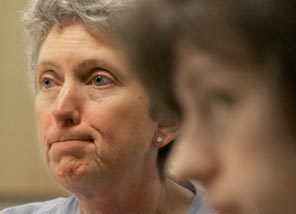
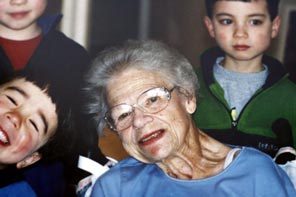
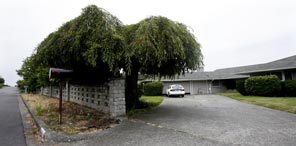
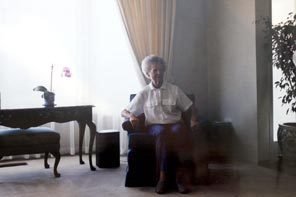
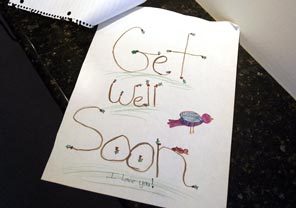
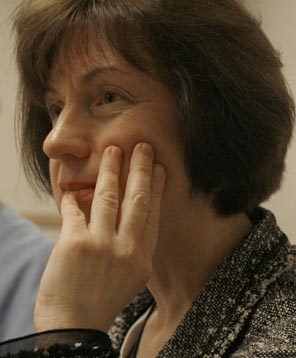
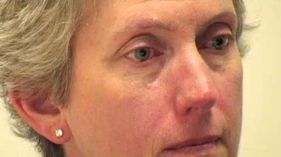

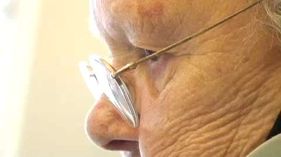
 Series home
Series home